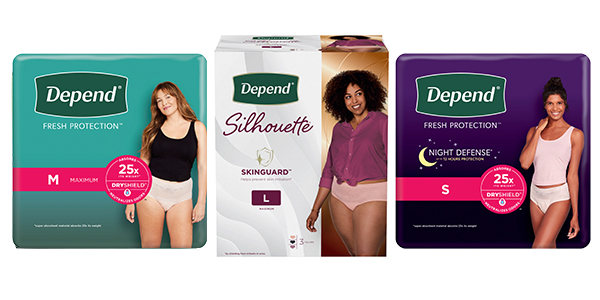Menopause and Incontinence

You’ve probably heard about the hot flashes and mood swings. But you might not realize that women going through menopause can experience incontinence.
As with any health issue around menopause, it’s best to bring it out into the open. Understanding that menopausal incontinence is common can help you feel less isolated. And learning more about causes, treatments and practical strategies to manage incontinence can help you move into this new stage of life with the confidence and energy you need.
Why Now?
During menopause, hormonal shifts and age-related changes can cause tissues to become less elastic and muscles to weaken. This can make bladder control more difficult.
Some women will experience stress incontinence, which involves minor leaks when coughing, laughing or exercising. Others will experience urge incontinence, which is characterized by a sudden need to urinate, sometimes so urgent it’s hard to get to a bathroom in time. Some women will experience both.
And then there are nighttime incontinence issues. Sleep – which can already be unsettled by menopausal symptoms — can be even more disrupted if you’re waking up to urinate several times.
So, what can you do if you find yourself dealing with incontinence?
Get Informed
This is not the time to suffer in silence, especially when a little information can help a lot.
Talk to your doctor. (If you’re feeling hesitant, remember they’ve heard everything before.) It might help to write down a list of questions and concerns before your appointment.
There are also excellent online resources available, through Health Canada, The Canadian Continence Foundation and other sites.
Exercise your Options
Yoga can be a relaxing way to tune things up: Look for poses and routines that are geared toward developing pelvic-area flexibility and tone.
You might also consider pelvic floor physical therapy, in which a specialized physiotherapist will work with you on targeted exercises and biofeedback to strengthen your pelvic floor.
And of course, you’ll want to do Kegels, Kegels and more Kegels. (Squeeze your pelvic muscles, imagining them lifting upwards. Hold for a count of three, then relax for a count of three. Make sure you’re working just the pelvic muscles — don’t clench your abdomen, buttocks or thighs. And try to continue breathing easily. Aim for at least three sets of 10 repetitions a day.)
Hydrate Right
When dealing with incontinence, your first instinct might be to cut back on your fluid intake. But you need that hydration, for all sorts of health reasons. And restricting liquids, which can lead to concentrated urine that irritates the bladder, can actually make incontinence worse.
The best way to stay properly hydrated is to stick with plain water, sipped at a regular pace over the course of the day.
Be aware that certain drinks – alcohol, coffee and tea, carbonated beverages and diet drinks with artificial sweeteners — can also bother the bladder. You might not want to give these up entirely, but you might consider cutting back at certain times, like when you’re prepping for a long day out or preparing to head to bed.
Track Changes
Keeping a journal – recording what you’re eating and drinking, when you’re taking bathroom breaks and when you’re experiencing leaks – can give you a better sense of your triggers and stressors.
A journal can also help with bladder training, in which you schedule regular bathroom visits, gradually increasing the time in between, to gain more control.
Make the Right Choice
When dealing with bladder leaks, it’s important to find the right protection for you. Once you get the right product and the right fit, you can get on with your life, feeling confident and relaxed.
Depend® Fresh Protection™ Underwear for Women® features ultra-soft fabric for your best comfort and protection, while Silhouette® Underwear for Women® offer sleek fit that’s unnoticeable under clothes for all-day confidence and trusted protection. Night Defense® Underwear for Women® can help you rest easy, with up to 12 hours of comfortable overnight protection.

Look Ahead
It’s important to think about menopause not as a disease but as a natural part of life.
While there can be difficulties – unpredictable hot flashes, restless nights, fatigue, brain fog — there can also be new possibilities. For many women, this can be a time of reflection, growth and change.
So don’t let menopause define you, and definitely don’t let incontinence hold you back.
*If you’re not completely satisfied with your Depend® Underwear, we can help. Original receipt/UPC required. Restrictions apply. See Depend website for details. Purchase by 12/31/24. Mail in by 1/31/25.
